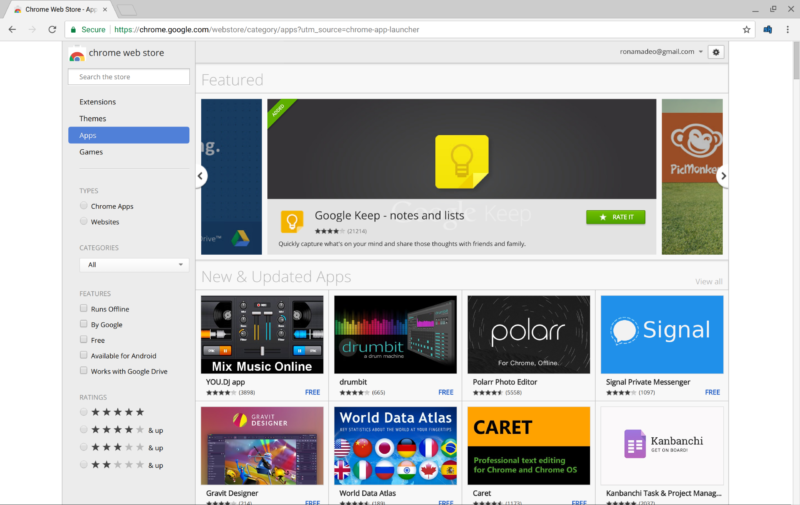
Chrome's Packaged Apps have been a dead platform for a while now, after a 2016 announcement that the "App" section of Chrome's Web store would be pulled from Windows, Mac, and Linux, leaving Chrome OS as the only supported OS. Today, Google announced that the last supported platform, Chrome OS, is losing access to Chrome apps, too, along with dates to strip the app feature out of Chrome's code base. Google writes it "will begin phasing out support for Chrome Apps across all operating systems as follows:"
- March 2020: Chrome Web Store will stop accepting new Chrome Apps. Developers will be able to update existing Chrome Apps through June 2022.
- June 2020: End support for Chrome Apps on Windows, Mac, and Linux. Customers who have Chrome Enterprise and Chrome Education Upgrade will have access to a policy to extend support through December 2020.
- December 2020: End support for Chrome Apps on Windows, Mac, and Linux.
- June 2021: End support for NaCl, PNaCl, and PPAPI APIs.
- June 2021: End support for Chrome Apps on Chrome OS. Customers who have Chrome Enterprise and Chrome Education Upgrade will have access to a policy to extend support through June 2022.
- June 2022: End support for Chrome Apps on Chrome OS for all customers.
Most Windows, Mac, and Linux users haven't been able to use Chrome packaged apps for years now, as the Web store was shut down for them in 2017. Users on those OSes shouldn't notice a thing, unless they were sideloading packaged apps or getting them through an enterprise management feature. Chrome OS is the real news here, and it will continue to cling to the feature until June 2022.
Chrome OS supports a number of platforms that get presented in the "app" style, so keep in mind only the "Chrome Packaged Apps" are going away. Chrome OS will still keep its app-like shortcuts to websites, along with support for "Progressive Web Apps (PWA)"—Web APIs that support app-style features like push notifications and offline functionality. There's still going to be support for Android apps, which bring the nearly 3 million apps in the Play Store to Chrome OS. Google also points out that "This change does not impact support for Chrome Extensions" and that "Fostering a robust ecosystem of extensions is critical to Chrome's mission, and we are committed to providing a useful extension platform for customizing the browsing experience for all users."
When Chrome Packaged Apps were conceived, they were Chrome OS' first step away from simple website icons to something that worked offline and offered deeper access to the hardware. With the addition of all of the other app platforms mentioned above, Chrome Packaged Apps became less and less relevant. The platform never took off on Windows, Mac, and Linux, with Google citing only 1 percent usage on those platforms. For Chrome OS users, there are plenty of other platforms with brighter futures.
Listing image by Dana Fried
reader comments
68